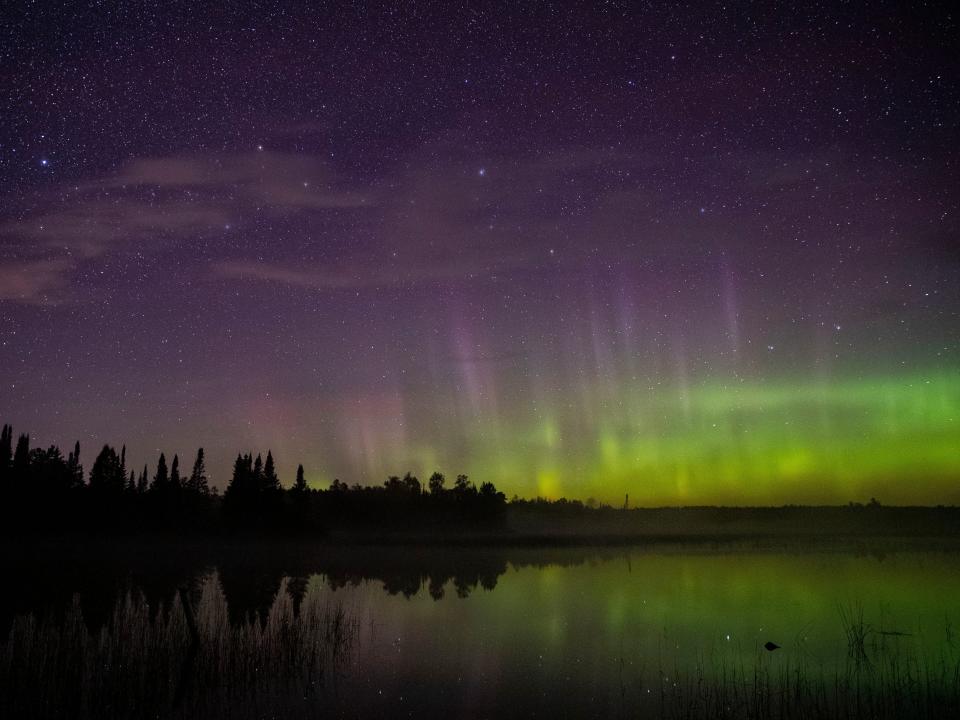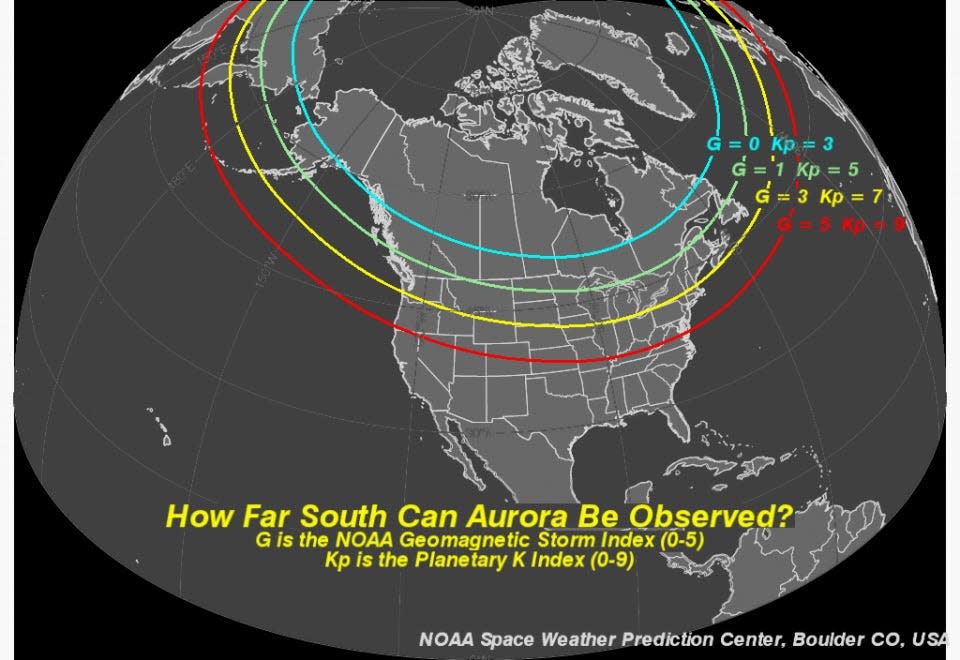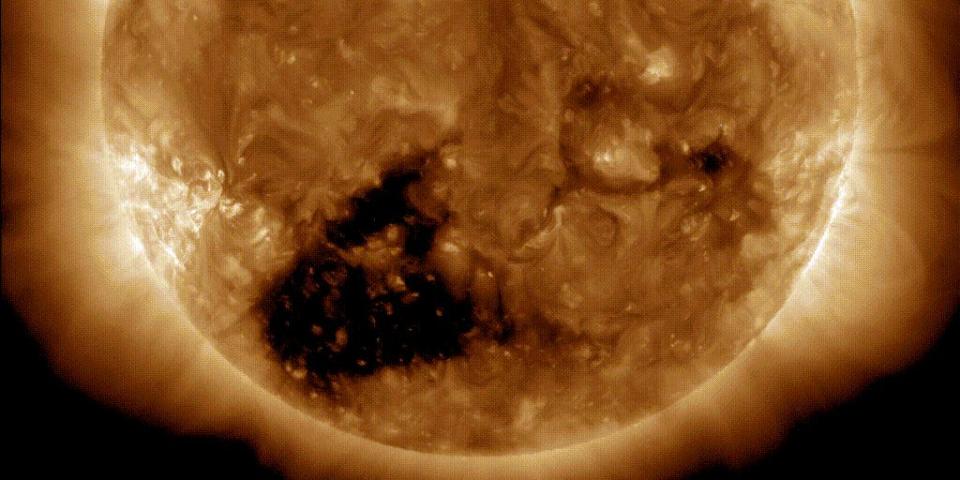
Skies across the northernmost US states could be graced with stunning displays of the Northern Lights on Friday, blown into view by a giant "hole" on the sun.
The aurora borealis might appear in skies from Washington to New York, lighting up the night with beautiful colors, as a stream of electrically charged particles called "solar wind" hits the poles and reacts with molecules in the atmosphere.
The Northern Lights are typically only visible closer to the Arctic Circle, but a forecast from the Space Weather Prediction Center shows they could creep further south as strong solar winds arrive, lighting up the skies with beautiful colors.
As of Wednesday morning, the aurora forecast predicted a "Kp index" of 6 on Friday. That's a measure for the strength of the Northern Lights. It indicates that the aurora may occur halfway between the green and yellow lines in the below image:

These solar winds are coming from a giant coronal hole on the sun.
The giant dark spot is not an actual hole in the way you might be thinking. Rather, it's an area of the ultra-hot outer layer of the sun's atmosphere (the corona) that's cooler in temperature than its surroundings, and therefore not glowing as bright.

This one is very large: the size of about 20-30 Earths lined up back-to-back, Alex Young, the associate director for science at NASA Goddard's Heliophysics Science Division, previously told Insider.
As that giant hole spread across the corona, it blasted strong, high-speed solar winds into space, in the direction of Earth. Those winds don't pose a threat, since the atmosphere shields us and they're not strong enough to cause widespread radio or power blackouts, as some powerful solar storms have in the past.
Because of the approaching eruption of solar particles, the Space Weather Prediction Center issued a watch for a moderate geomagnetic storm on Friday.
That's the magnetic-field chaos that ensues when those high-speed particles hit Earth. Our planet's magnetic field channels them toward the North and South Poles, where they set off a beautiful, ethereal glow. Stronger geomagnetic storms can interfere with GPS, radio, and power grids.
But moderate geomagnetic storms are more benign. They have previously driven the aurora lights as far south as New York and Idaho.
Read the original article on Business Insider
https://news.google.com/rss/articles/CBMiU2h0dHBzOi8vY2EuZmluYW5jZS55YWhvby5jb20vbmV3cy9ub3J0aGVybi1saWdodHMtY291bGQtZGF6emxlLXNraWVzLTE2NDYwMzk1My5odG1s0gFbaHR0cHM6Ly9jYS5maW5hbmNlLnlhaG9vLmNvbS9hbXBodG1sL25ld3Mvbm9ydGhlcm4tbGlnaHRzLWNvdWxkLWRhenpsZS1za2llcy0xNjQ2MDM5NTMuaHRtbA?oc=5
2023-03-22 16:46:03Z
1863250627
Tidak ada komentar:
Posting Komentar